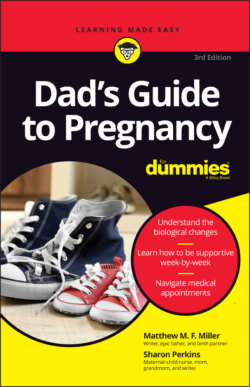Читать книгу Dad's Guide to Pregnancy For Dummies - Sharon Perkins - Страница 52
Sexually transmitted infections
ОглавлениеAmong the biggest fertility busters in the age of sexual freedom are sexually transmitted infections (STIs), formerly known as sexually transmitted diseases (STDs). The following STIs can affect female fertility in these ways:
Chlamydia, if not treated promptly, increases the risk of pelvic inflammatory disease (PID) by 40 percent. PID damages the fallopian tubes. Women with PID are seven to ten times more likely to have an ectopic pregnancy. Eighty percent of women who’ve had chlamydia three or more times are infertile.
Gonorrhea also increases the risk of PID and ectopic pregnancy.
Human immunodeficiency virus (HIV), if untreated, can affect male and female fertility and increase the risk of pregnancy loss. Antiretroviral treatment before trying to get pregnant can significantly reduce the risks. An undetectable viral load can reduce the risk of transmission to your child during pregnancy to less than 1 percent.
Human papillomavirus (HPV), also called genital warts, may increase the risk of early miscarriage, and could affect sperm motility in some cases. To be safe, have treatment before trying to get pregnant.
Syphilis can cause miscarriage, stillbirth, developmental delays, and blindness in your unborn child.
STIs need to be treated early with antibiotics before damage is done to the fallopian tubes. Having a hysterosalpingogram (HSG), a dye test to assess the patency of the tubes, is a good idea if your partner has any concerns about whether her tubes have been damaged in the past.
